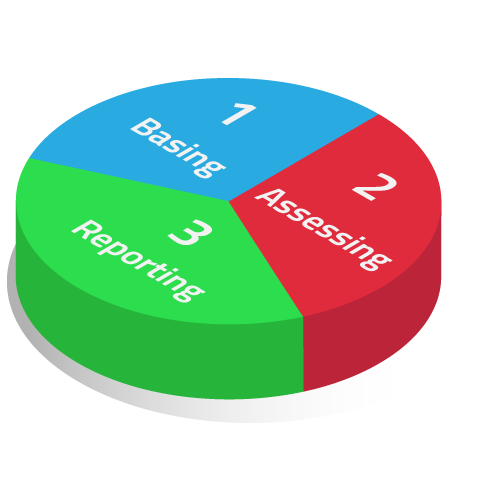We identify, analyze and prepare construction claims and disputes for construction and engineering projects. Should a construction claim occur, we can assist you in assessing or validating entitlement and quantification of damages thus promoting a successful resolution in an efficient and timely manner.
Our team prepares and analyze claims and disputes for construction and engineering projects throughout the world. We assist our clients in all construction industries by identifying, analyzing, quantifying, and presenting any construction claims that may arise during the project.
In the unfortunate event a construction claim does occur, our consultants are equipped to provide ongoing support in assessing or validating a party’s entitlement and quantification of damages to promote resolution. By analyzing the construction contract and the parties’ performance throughout the construction duration, our consultants can identify liability, quantify damages, and assist in resolving the dispute in a timely and cost effective manner.
We assist clients in all construction industries by identifying claims proactively and offering strategic insights and support including analysis, quantification, and presentation of claims
We are equipped to provide ongoing support in assessing or validating a party’s entitlement and quantification of damages to promote resolution. By analyzing the project schedules, construction contract and the parties’ performance throughout the construction duration, we can identify liability, quantify damages, and assist in preparing a request for equitable adjustment or construction claims in a timely and cost effective manner. We utilize standard industry means and methods to identify, quantify and prepare schedule delay claims.
Our experts are equipped to provide ongoing support in assessing or validating a party’s entitlement and quantification of damages to promote resolution. By analyzing the project schedules, construction contract and the parties’ performance throughout the construction duration, our experts can identify liability, quantify damages, and assist in resolving the dispute in a timely and cost effective manner.
Acceleration can occur if an owner or general contractor directs a party to perform all or a portion of its work prior to its anticipated completion date. Acceleration can often lead to increased costs for the contractor. We evaluate and quantify acceleration costs before or after a contractor is direct to accelerate.
We assist clients in evaluating and quantifying differing site condition claims.
Construction claims are often the result of cost overruns, time delays or construction defects, all of which are qualitatively visible. Assessments of damages associated with construction claims is a diligent effort, as they are often intertwined between various aspects of the project, such as cost estimating, scheduling, sequencing and project management. We are experts in the quantification, presentation and evaluation of construction damages.
Construction claims are both costly and time consuming for your organization and your clients. Our extensive knowledge with each phase of the construction project lifecycle allows us to provide insight prior to commencement and during the construction of your project, which will help you avoid issues down the road. We can assist with a variety of activities that will assist in avoiding costly disputes including:
- Contract reviews
- Pre-project planning
- Plan reviews
- Cost and schedule validation and monitoring
- Constructability reviews
We have expertise in the preparation and presentation of construction claims. We assist clients in all construction industries by offering strategic insights and support including analysis, quantification, preparation and presentation of construction claims.
Should a claim be determined to be an appropriate course of action, we have the knowledge and experience to assist with developing a strategic approach, preparing an effective claim and presenting the claim in a way that will maximize your potential for recovering potential losses. A thorough analysis of project contracts and documentation along with effective written and graphical illustrations of the facts can assist in supporting your position. We can assist with the preparation and presentation of all types of claims
For a dispute to be resolved, you need information that is clear, concise and objective. Our experienced consulting and testifying experts analyze individual dispute situations and provide the objective and technical assessment needed to reach resolution. From mediation, arbitration and litigation consulting to expert testimony, we have the services to support you in every phase of the dispute resolution process. We provide expert construction litigation services in a variety of capacities. Our construction consultants serve our clients in a range of ways from providing assistance in navigating the litigation process to providing expert testimony. We analyze each particular dispute situation to gain a complete understanding of every aspect and then draws from our pool of experts in management, construction and engineering to ensure the best outcome for our clients.
Our general claims assessment approach
Basing the contractual and legal right:
The burden of proof is upon the claimant; therefore, the contractor should establish, that it has the right to an entitlement of additional time and/or cost following the employer risk event in accordance with the contract.
The entitlement must be established through the review of the contract in relation to the statement of claim and substantiation which must demonstrate a contractual right.
Providing the contractor with the result of the claim assessment
Once the employer risk events are substantiated and the entitlement has been analyzed, it is communicated to the contractor for acceptance and closing the claim.

Assessing the claim
Once the contractual right is established, the details of the delay and cost methodologies can be selected as outlined in sections are selected and the following steps are implemented in order to assess the claim of the time and cost.
- Establishment of the impacted completion date consequently the extension of time
- Analyzing and segregating the culpabilities between parties with regards to the impacted completion.
- Determining the cost impact of the employer risk events
Main principles of assessing an extension of time claim
- Law of the parties is the contract, but this may change when a dispute is referred to Qatar courts.
- Every contract is different and requires different scenarios; hence administrators must use common sense.
- The assessment of EOT entitlement is a separate process to the assessment of contractor entitlement to costs.
- Any assessment of delay and EOT entitlement should be on a chronological order and net effect basis.
- True concurrency rarely exists, concurrent delay (effect) events that appear to represent concurrent delay when analyzed, can often be broken down into a series of discrete employer and contractor delay events.
- Documents to be available:
*Project baseline programme.
*As built programme or sufficient as build data to implement an as built programme. - Once an effect of a delay event is assessed, a logical observation is carried out with regards to the changes on the critical and longest paths and the result of the delay event.
- Never use a supplier I subcontractor quotation to establish ACTUAL COST as these are an order of cost estimate only and not representative of actual.
Delay analysis methodologies
The numbers and description of the delay analysis methodologies wildly vary between the international norms and standards (AACE international and the Society of Construction Law (SCL)). However, the most commonly used methods are
- Certain methods start with the identification and description of an event (a cause) and thereafter seek to establish its impact (the effect) – these are cause and effect type analyses. Other methods start with identifying critical delay (an effect) and thereafter seek to establish what might have caused that delay- these are effect and cause type analyses.
- Criticality is determined in one of three different ways. Purely prospective critical path assessments adopt the perspective evident at the outset of the project only and take no account of progress achieved. Contemporaneous critical path assessments adopt an evolving perspective over the course of the works and take account of the effect that both historical progress and changes in the strategy for the future prosecution of the works have on predicted criticality. Retrospective critical path assessments adopt the perspective evident at the end of the project (or window of time); and
- The delay impact is determined in one of two different ways. Prospective delay assessment identifies the likely impact of historical progress or delay events on the completion milestones. Retrospective delay assessment identifies the actual impact of the delay events on the identified actual or as-built critical path.
Selecting the delay analysis methodology
Irrespective of which delay analysis is deployed, for an independent expert there is an overriding objective of ensuring that the conclusions derived from that analysis are fair and sound from a common-sense perspective.
Where delay is assessed after completion of the works, or considerably after the occurrence of the event or its impact, then the prospective analysis of delay may no longer be relevant or appropriate. In such circumstances, the choice of method of delay analysis to be deployed should be determined by reference to the following criteria:
The overriding objective of reaching a fair and sensible conclusion
The nature, extent and quality of the records available
Any applicable standards and criteria






The relevant conditions of contract
The nature of the causative events
The nature, extent and quality of the programme information available








